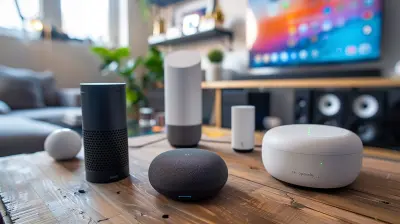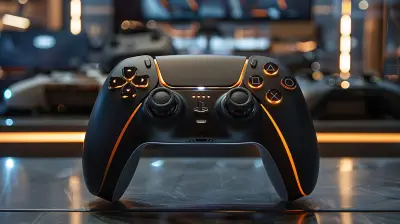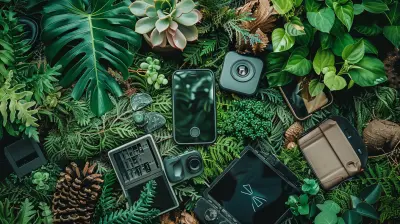How Energy Harvesting Gadgets Are Changing the Game for Sustainability
11 September 2025
Welcome to the future — where your fitness tracker charges itself, your smart sensors feed off sunlight, and your keyboard literally powers up from your typing. Sounds like something out of a sci-fi movie, right? But nope, it's the real deal. Energy harvesting gadgets are here, and they’re changing the way we think about power, sustainability, and our favorite tech toys.
In this article, we’ll dive deep into how energy harvesting works, the gadgets that are already making waves, and why this tech is more than just a buzzword — it’s a total game-changer for sustainability.
⚡ What Is Energy Harvesting, Anyway?
Let’s break it down real simple. Energy harvesting (also called energy scavenging, which sounds fancy but kinda spooky) is the process of capturing and storing small amounts of energy from the environment — think light, heat, movement, or even radio waves — and using it to power devices.Instead of plugging in or popping in a battery, energy-harvesting gadgets sip power straight from their surroundings. It’s like your tech went on a clean energy diet and ditched the battery junk food.
Cool, right? But how does this stuff work in the real world?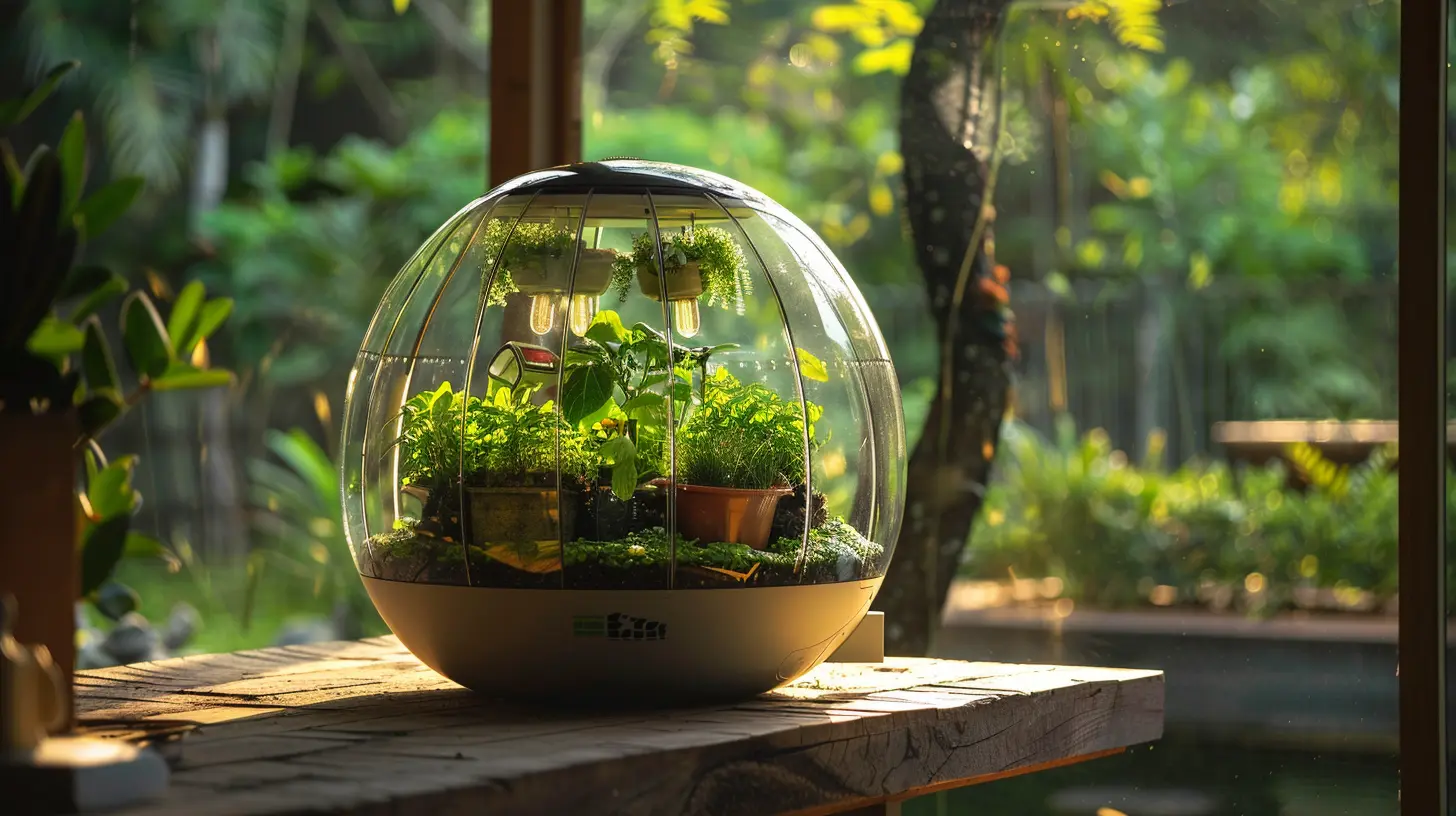
🛠️ The Magic Behind the Tech
So, how do these gadgets actually pull this off? Well, there are a few clever tricks they use depending on the energy source:☀️ Solar or Photovoltaic Harvesting
You've probably seen this before — tiny solar panels on calculators or garden lights. But now, imagine this tech shrunk down and embedded into smartwatches, wearables, and even wireless sensors.🌡️ Thermoelectric Harvesting
This is where things get spicy — literally. These gadgets convert heat differences (like your body heat or the heat from machinery) into electricity. It’s like turning warm leftovers into power. Neat!🔁 Piezoelectric or Vibration-Based Harvesting
This one's straight-up sci-fi. These devices generate power when physically moved or vibrated. Imagine shoes that charge your phone just from walking. That’s not a dream — it’s already in development!📡 RF Energy Harvesting
This tech taps into radio frequencies in the air (think Wi-Fi, cellular signals) and converts them into usable power. We’ve got waves flying everywhere, might as well use 'em!
🌍 Why Energy Harvesting Is a Sustainability Superhero
Let’s get one thing straight — energy harvesting isn't just "cool tech." It’s a powerhouse for sustainability. Here's why it matters more than ever:🔋 Bye-Bye Batteries (And All Their Problems)
Traditional batteries are messy. They need mining, they have a shelf life, and they pose environmental hazards when tossed. Energy harvesting gadgets reduce our dependence on throwaway batteries and that’s a big win for the Earth.Imagine a future where your environmental sensors, wearables, or even PC peripherals don’t need batteries replaced every few months. That’s less waste, less hassle, and way more eco-awesome.
🌱 Energy Independence = Planet Love
Harvesting energy from ambient sources means devices can run for years — sometimes decades — without needing a recharge or power cable. That means fewer power plants, less grid pressure, and more renewable, sustainable tech. It’s like letting your gadgets go off-grid and finding zen.💸 Lower Long-Term Costs
Sure, initial setup might be higher, but once it’s running? No more energy bills or battery replacements. Over time, that’s huge — especially for industries running fleets of sensors or smart devices.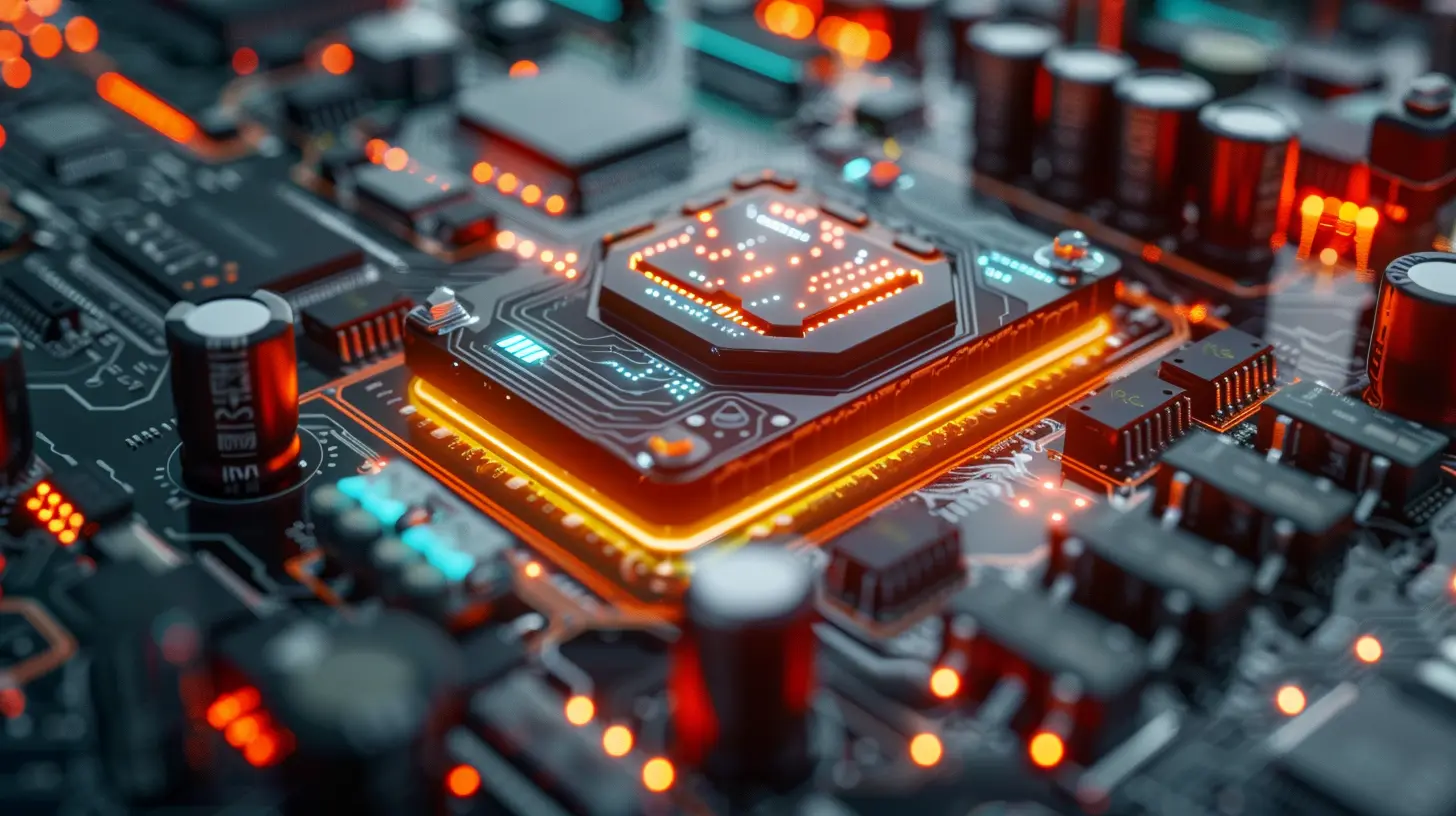
🧠 Where Are These Gadgets Being Used Today?
Now that we’ve covered the “what” and the “why,” let’s talk about the “where.” Energy harvesting isn’t just some laboratory experiment. These gadgets are already out there, changing the game in ways most people don't even realize.🏠 Smart Homes
From self-powered thermostats to wireless light switches that don’t need batteries, smart homes are getting smarter—and greener. Energy harvesting eliminates the constant battery swap cycle and makes installations way easier.🏭 Industrial IoT
Factories are full of vibrations, moving parts, and temperature changes — perfect sources for harvested energy. By powering sensors and monitors with ambient energy, the industry gets automated insights without adding wiring or maintenance loads.🧍 Wearables
Fitness trackers, smartwatches, even smart glasses are using solar and kinetic energy to extend battery life or, in some cases, never need charging at all. A jog might just keep your gadgets alive, too.🌲 Environmental Monitoring
Remote weather stations, wildlife trackers, or air quality monitors in forests and oceans? Energy harvesting is perfect here. No charging ports in the jungle, after all.🚴♂️ Smart Transportation
Bike-powered phone chargers, energy-harvesting shock absorbers in cars, and solar-powered GPS trackers are already paving the road (pun intended) for greener commutes.🤖 The Most Mind-Blowing Energy Harvesting Gadgets So Far
Let’s geek out for a second. Some of the energy harvesting gadgets out there are straight-up mind-blowing.1. Seiko's Solar-Powered Watches
Seiko’s line of solar watches keeps ticking with just light. Indoor, outdoor, doesn’t matter. Goodbye, dead batteries.2. Matrix PowerWatch
Powered entirely by your body heat, this smartwatch tracks your steps, tells the time, and never needs to be plugged in. Like, ever.3. Piezoelectric Keyboards
Researchers are developing keyboards that generate small amounts of electricity as you type. Work emails could literally power your desk gadgets. Productivity meets power.4. Thermoelectric Backpacks
Yep. These backpacks convert your body heat and motion while walking into usable energy to charge your devices. Hiking just got an upgrade.5. EnOcean Self-Powered Sensors
Widely used in smart buildings, EnOcean’s sensors work without batteries using kinetic energy. Press a button, flip a switch — boom, wireless signal sent via harvested power.🔮 What's Next? The Future of Energy Harvesting Tech
Okay, so we’ve got self-charging watches, keyboards, and motion-powered stuff — what’s next?We're heading into a world where sensors can be sprinkled like fairy dust. Imagine thousands of mini devices monitoring air quality, traffic flow, or crop health — all without ever needing to swap a battery or plug in a charger.
Here are a few exciting trends on the horizon:
🧬 Flexible and Wearable Energy Harvesters
Soon, your clothes might power your gadgets. Researchers are working on fabrics that can gather solar or kinetic energy. Your shirt might just replace your power bank.🛜 6G and Ultra-Low Power IoT
As networks evolve, devices will need even less energy, which works hand-in-hand with harvesting. Small power demand + ambient energy = long-lasting, autonomous gadgets.🛰️ Space and Remote Tech
Space probes, satellites, and remote Earth sensors can’t exactly plug in. Energy harvesting enables long-lasting gear in the most extreme locations you can imagine.🙋♂️ Why Should You Care?
Let’s be real — unless you’re an engineer or a tech geek (guilty!), you might be thinking, “Okay, but how does this affect me?”Here’s the truth:
- You’ll buy fewer batteries.
- Your gadgets will last longer.
- You’ll reduce your carbon footprint without changing your habits.
- Your home will be smarter with less maintenance.
- And best of all? You’ll be part of the movement toward a more sustainable, greener world.
Energy harvesting isn’t just a cool feature. It’s a quiet revolution. And it’s happening right under your fingertips, in your wristwatch, and even on your light switch.
🌟 Final Thoughts
We’re standing at the edge of something big. Energy harvesting gadgets are transforming the way we use and think about energy — turning passive environments into power sources. And not just in high-tech labs or futuristic cities, but in everyday homes, pockets, and workplaces.From reducing waste to supporting smart infrastructure, these tiny tech wonders are rewriting the rulebook for sustainability. And the best part? We don’t even need to plug in.
So the next time someone gripes about dead batteries, just smile and say, "There's a better way.
all images in this post were generated using AI tools
Category:
Green TechnologyAuthor:

Pierre McCord
Discussion
rate this article
1 comments
Macey McSweeney
This article insightfully highlights the transformative potential of energy harvesting gadgets in promoting sustainability. By harnessing ambient energy, these innovations not only reduce dependence on conventional power sources but also pave the way for a greener future. Exciting times ahead for eco-friendly technology!
September 19, 2025 at 4:17 PM

Pierre McCord
Thank you for your insightful comment! I'm glad you found the article highlights the promising future of energy harvesting gadgets in advancing sustainability. Exciting times indeed!
